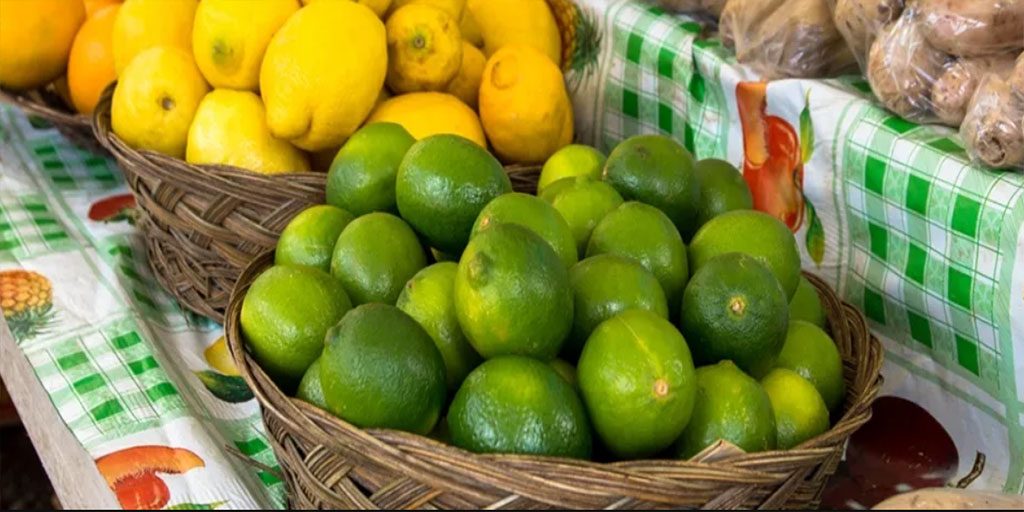


16th August 2020
Lemons: Health Benefits & Nutrition Facts
By
When life gives you lemons … you're in luck. Lemons are full of vitamins, minerals, phytonutrients and antioxidants. They are especially good sources of vitamin C and folate.
Lemons are one of the most popular acid citrus fruits, according to the Purdue University Horticultural Department. Their origin is unknown, though some horticulturists theorize they come from Northern India. Lemons grow throughout southern Europe, the Middle East, and into East Asia. They were brought to the New World by Christopher Columbus in 1493. Today, the leading lemon producers are California, Arizona, Italy, Spain, Greece, Turkey, Cyprus, Lebanon, South Africa and Australia.
"Lemons are high in vitamin C, folate, potassium, flavonoids and compounds called limonins," said Alissa Rumsey, a New York City-based registered dietitian, certified strength and conditioning specialist and spokesperson for the Academy of Nutrition and Dietetics. "Limonins are found in the juice of the lemon."
According to World's Healthiest Foods, a quarter cup of lemon juice contains 31 percent of the daily recommended intake of vitamin C and 3 percent of folate and 2 percent of potassium — all for around 13 calories. A whole raw lemon contains 139 percent of the daily recommended vitamin C intake and has 22 calories.
| Nutrition Facts Lemon Serving size: Calories 15 *Percent Daily Values (%DV) are based on a 2,000 calorie diet. | Amt per Serving | %DV* | Amt per Serving | %DV* | ||
| Total Fat0g | 0% | Total Carbohydrate5g | 2% | |||
| Cholesterol0mg | 0% | Dietary Fiber 2g | 8% | |||
| Sodium0mg | 0% | Sugars 2g | ||||
| Protein 0g | ||||||
| Vitamin A | 0% | Calcium | 2% | |||
| Vitamin C | 40% | Iron | 0% |
Health Benefits
Immunity
"Vitamin C is plays a role in immunity and helps neutralize free radicals in our body," said Rumsey. According to the Linus Pauling Institute at Oregon State University, vitamin C stimulates the production of white blood cells and may protect the integrity of immune cells. Vitamin C helps protect leukocytes, which produces antiviral substances.
Heart health
"Folic acid is said to aid in preventing strokes and may contribute to helping cardiovascular health by lowering homocysteine levels," Rumsey said. A 2010 meta-analysis published in The European Journal of Internal Medicine found that results from clinical studies examining folic acid and heart attacks were inconclusive but folic acid consumption can result in a modest improvement in stroke reduction.
Vitamin C, too, is linked to a reduced risk of cardiovascular disease, said Rumsey. A 2015 study published in The American Journal of Clinical Nutrition looked at more than 100,000 people and found that those who ate the most fruits and vegetables had a 15 percent lower risk of developing heart disease. Those with the highest vitamin C levels in their plasma had even more reduced rates of heart disease.
Scientists theorize that vitamin C may have cardiovascular benefits because it is an antioxidant that protects against dangerous free radicals. It also may lower bad LDL cholesterol and keep arteries flexible, according to the University of Maryland Medical Center.
"Studies have also shown the effect of limonin on lowering cholesterol," said Rumsey. In a 2007 study published in Alternative Therapies in Health and Medicine, men and women who had high cholesterol were given limonin and vitamin E daily for a month and their cholesterol levels lowered 20 to 30 percent. The researchers think that limonin reduces apolipoprotein B, which is associated with higher cholesterol levels.
Kidney stones
Lemons and limes contain the most citric acid of any fruits, which makes them beneficial to those suffering from kidney stones. According to University of Wisconsin Health, citric acid deters stone formation and also breaks up small stones that are forming. The more citric acid in your urine, the more protected you are from forming new kidney stones. Half a cup of pure lemon juice every day or 32 ounces of lemonade has the same amount of citric acid as pharmacological therapy.
Cancer
A 2011 study published in the Asian Pacific Journal of Cancer Preventionfound that lemon extract applied to breast cancer cells induced cell death. The lemon extract was applied in-vitro, but the results may suggest powerful cancer-fighting properties in lemons.
"There are numerous studies being conducted to understand the role folate plays in cancer reduction," Rumsey said. A 2007 article in the American Journal of Clinical Nutrition notes that folate's possible cancer-reducing properties are likely linked to its role in the production of substances that silence cancer DNA. The study points out, however, that some research has suggested that in some cases high levels of folate could actually encourage cancer cell growth. The authors write, "Folate may provide protection early in carcinogenesis and in individuals with a low folate status, yet it may promote carcinogenesis if administered later and potentially at very high intakes."
Limonins have also been linked to a decrease in cancer risk, said Rumsey. A 2012 article in the Journal of Nurtigenetics and Nutrigenomics looked at limonins in breast cancer cells and found that they could be a helpful aid to chemotherapy.
Pregnancy health
"Folate is essential for pregnant women in order to prevent neural tube defects," said Rumsey. While folate is present in prenatal vitamins, consuming it through whole foods is an excellent way to make sure the body absorbs it. [Related: Pregnancy Diet — What to Eat, What Not to Eat]
Lemons, peels and weight loss
Lemons, lemon water and lemon peels have become popular with dieters; as Rumsey said, "Lemons are a great, low calorie way to flavor drinks and food."
Rumsey added that the peels also contain many nutrients. "Grating the peels and adding to salads, chicken or fish dishes can add a citrusy flavor. Peels can also be blended into smoothies or soups." But she emphasized against treating them like a magic bullet for detoxing and weight loss.
Risks of consuming lemons
In general, lemons are quite good for you, but if consumed in excess, can cause gastric reflux problems or heartburn for those who suffer from the conditions. Additionally, the citric acid can wear down the enamel on your teeth, according to World's Healthiest Foods, which encourages drinking lemon water through a straw.



